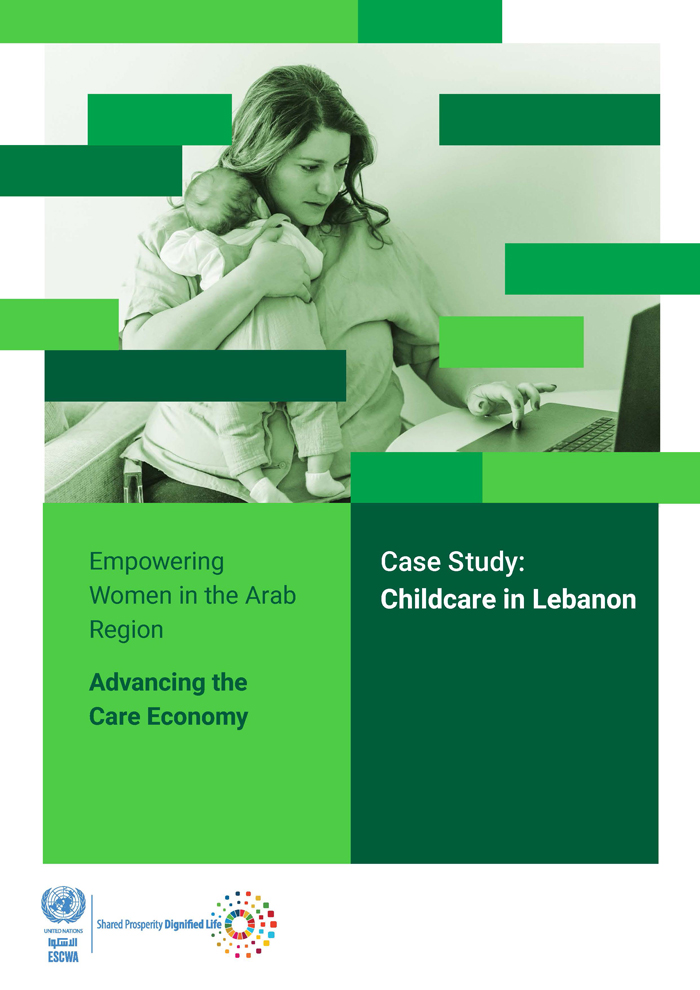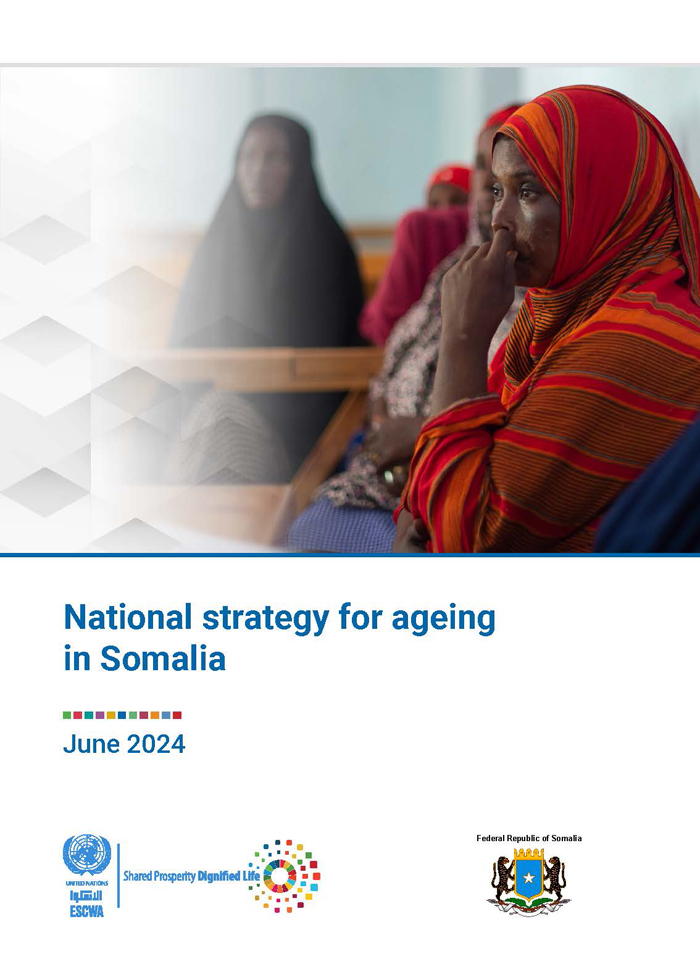
ESCWA Publication: E/ESCWA/CL2.GPID/2022/TP.2
Country: Arab region, Lebanese Republic
Publication Type: Information material
Cluster: Gender Justice, Population and Inclusive Development
Focus Area: Gender equality
Initiatives: Women’s economic empowerment
SDGs: Agenda 2030, Goal 5: Gender Equality
Keywords: Empowerment, Women, Child care, Case studies, Private sector, Public sector, Social protection, Parents, Family, Technical cooperation
Empowering women in the Arab region: Advancing the care economy - Case study: childcare in Lebanon
July 2022
This case study provides an in-depth understanding of the characteristics of the childcare economy in Lebanon, its major stakeholders, the changes that occurred over the last decade and during the COVID-19 pandemic, the needs and expectations of families, as well as the broader policy environment framing the public and private provision of care. The conceptual framework adopted for this case study considers the importance of recognizing, reducing and redistributing unpaid care among the State, families and societies. The case study relied on a literature review and a secondary data available as well primary data collected through key informants’ interviews and an online survey with parents benefiting from childcare services in the private sector.
Results obtained showed that the development of the services in the private sector over the past two decades is to be accompanied by an enhancement of legislative frameworks related to labour and social protection as well as more affordable, flexible and modular services. The improvement of the quality of services in the public sector is also crucial. The study concludes with a set of policy recommendations to promote the distribution of the burden of unpaid childcare responsibilities among the State, families and societies at various levels: legal and regulatory, coordination and monitoring; employers; childcare services; and parents and family.
Related content
Gender equality
,
This case study provides an in-depth understanding of the characteristics of the childcare economy in Lebanon, its major stakeholders, the changes that occurred over the last decade and during the COVID-19 pandemic, the needs and expectations of families, as well as the broader policy environment framing the public and private provision of care. The conceptual framework adopted for this case study considers the importance of recognizing, reducing and redistributing unpaid care among the State, families and societies. The case study relied on a literature review and a secondary data available as well primary data collected through key informants’ interviews and an online survey with parents benefiting from childcare services in the private sector.
Results obtained showed that the development of the services in the private sector over the past two decades is to be accompanied by an enhancement of legislative frameworks related to labour and social protection as well as more affordable, flexible and modular services. The improvement of the quality of services in the public sector is also crucial. The study concludes with a set of policy recommendations to promote the distribution of the burden of unpaid childcare responsibilities among the State, families and societies at various levels: legal and regulatory, coordination and monitoring; employers; childcare services; and parents and family.



